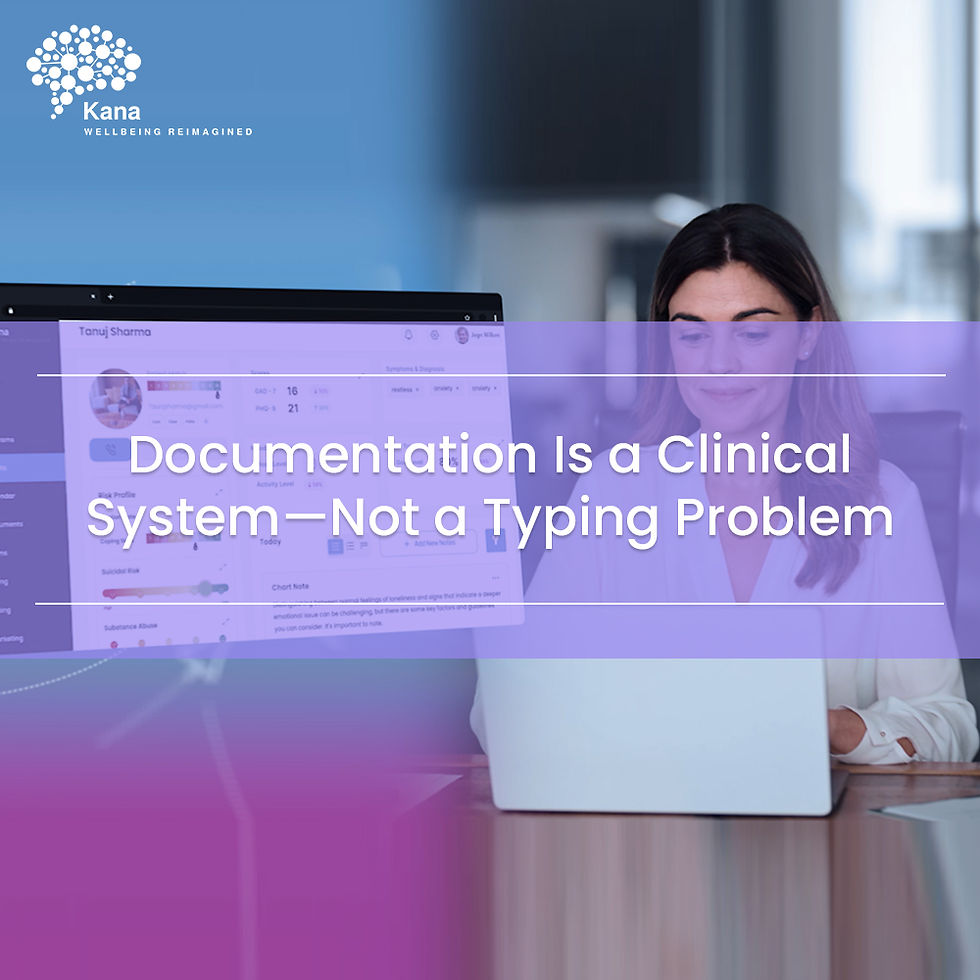The Role of AI in Enhancing Employee Mental Wellness Programs
- emailvishesh
- Mar 1, 2025
- 3 min read
In today’s fast-paced work environment, employee mental health is becoming a cornerstone of organizational success. Stress, burnout, and other mental health challenges are on the rise, costing the global economy $1 trillion annually in lost productivity, according to the World Health Organization (WHO).

Companies are recognizing that supporting employee well-being is no longer optional—it’s essential. Artificial Intelligence (AI) is transforming how organizations implement Employee Assistance Programs (EAPs), making them more accessible, personalized, and proactive.
Challenges with Traditional EAPs
While traditional Employee Assistance Programs have been instrumental in providing mental health support, they face several limitations:
Underutilization: Many employees remain unaware of EAPs or hesitate to use them due to stigma.
Lack of Personalization: Generic programs often fail to meet diverse individual needs.
Delayed Intervention: Periodic assessments do not address real-time challenges, leaving issues to escalate.
How AI is Transforming Mental Wellness Programs
AI-powered solutions are addressing these gaps by providing scalable, real-time, and personalized mental health support. Let’s explore how AI enhances employee wellness initiatives:
1. Personalized Wellness Support
One of the key advantages of AI is its ability to deliver tailored wellness solutions. Traditional approaches often take a one-size-fits-all stance, which may not resonate with the diverse workforce. AI leverages data analytics and machine learning to analyze health records, biometric data, and lifestyle habits to create customized recommendations.
Examples: AI wellness platforms can suggest personalized exercise plans, dietary guidance, stress management techniques, and sleep optimization strategies.
Impact: This approach increases employee engagement and ensures better outcomes by addressing individual needs effectively.
2. Predictive Insights for Proactive Care
AI's predictive capabilities allow organizations to identify potential health risks before they escalate. By analyzing historical data and patterns, AI can detect early indicators of chronic conditions, mental health concerns, or burnout.
Example: AI systems can flag signs of stress or fatigue by analyzing work patterns, productivity metrics, and biometric data.
Action: Employers can implement targeted interventions, such as wellness workshops, mindfulness sessions, or flexible work arrangements, to mitigate risks and create a healthier work environment.
3. Real-Time Interventions
Unlike traditional programs, AI provides real-time support to employees, ensuring immediate assistance when needed.
Examples: AI chatbots and virtual assistants embedded in wellness platforms can provide:
Stress-relief exercises
Mental health resources
Scheduling support for healthcare appointments
Availability: These tools are accessible 24/7, enabling employees to manage their mental well-being at their convenience, fostering a sense of continuous support.
4. Reducing Stigma Through Anonymity
AI-powered solutions create a confidential environment for employees to seek help without fear of judgment. This anonymity encourages those hesitant about traditional counseling to engage with mental health resources.
5. Enhancing Organizational Efficiency
AI-driven systems streamline administrative tasks, such as monitoring program utilization and analyzing employee feedback. These insights allow HR teams to refine wellness strategies and allocate resources where they are most needed.
How Kana Revolutionizes Corporate Wellness
Kana Health leverages AI to transform workplace mental health programs by delivering innovative, employee-centric solutions:
Comprehensive Assessments: Kana evaluates individual and organizational mental health needs to develop tailored interventions.
Integrated Support: Combining AI insights with human expertise, Kana ensures seamless coordination between employees and mental health resources.
Data-Driven Insights: Actionable reports empower HR leaders to identify trends, address gaps, and enhance program effectiveness.
Scalable Solutions: Kana's AI tools accommodate the needs of diverse and large workforces without compromising on quality.
The Future of AI in Employee Mental Wellness
AI has redefined how organizations approach mental health, offering scalable, proactive, and personalized solutions. With tools like Kana, companies can go beyond traditional EAPs to foster a culture that prioritizes employee well-being.
However, ethical implementation is essential. Ensuring data privacy, minimizing bias in AI algorithms, and maintaining human oversight are critical to building trust in AI-powered mental health programs.
By embracing AI in employee wellness initiatives, organizations can create a healthier, more resilient workforce while driving productivity and engagement.
References
WHO: Mental health in the workplace.
Gallup: Employee Burnout: Causes and Cures.
APA: AI in Workplace Wellness Programs.
National Institute of Mental Health (NIMH): AI and Mental Health.
AOL: Health Care Leaders Emphasize the Need for AI in Solving Workforce Shortages.















Comments